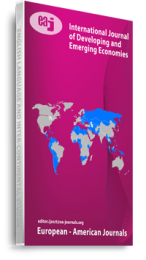The rate of savings in Nigeria has been low over the years. Despite efforts to stimulate savings through the adoption and implementation of financial liberalization policies, the rate of savings in the country has remained low in absolute and comparative terms. Previous studies on the determinants of savings in the country focused mainly on the association between savings and financial liberalization [(Gross Domestic Product (GDP), Broad Money Supply (BMS) and Deposit interest Rate (DPR)], paying scant attention to institutions [(Rule of Law (RUL), Control of Corruption (COC), Political Stability and absence of violence/terrorism (POS), Regulatory Quality (RGQ), Voice and Accountability (VAC) and Government Effectiveness (GEF)]. This study therefore examined the effect of financial liberalization and institutions on Gross Domestic Savings (GDS) in Nigeria. The study adopted ex-post facto design. Annual data from 1996 to 2020 on Nigeria was sourced from World Development Indicators (WDI, 2020) and World Governance Indicators (WDI, 2020). Data was analyzed using Ordinary Least Squares (OLS) estimation technique. The study adopted the 5% level of significance. Findings of the study revealed that GDP, DPR and BMS had positive and insignificant effect on GDS in Nigeria. The findings also showed that institutions was correlated with GDS in Nigeria. The study concluded that the effect of financial liberalization on savings in Nigeria improved when it was moderated with institutions. The study recommended that the country should strengthen its institutions by controlling corruption and ensuring political stability and regulatory quality to boost its savings.
Keywords: Financial Liberalization, Gross Domestic Product, Institutions, Nigeria, gross domestic savings

